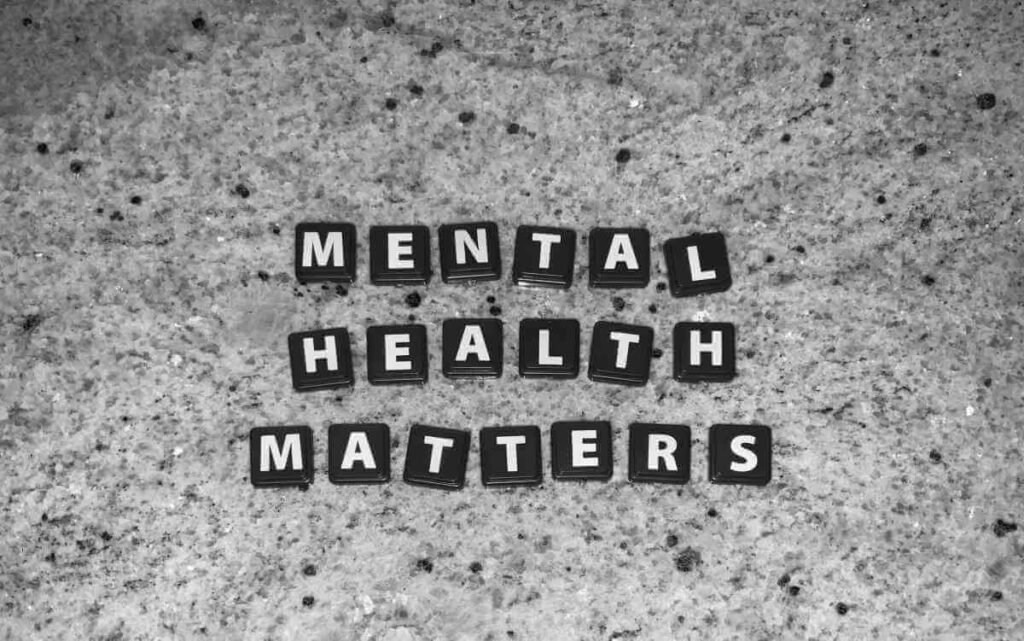😴 Feeling Tired All the Time? It Could Be Burnout
Do you wake up exhausted, even after a full night’s sleep?
Do everyday tasks feel unusually difficult or overwhelming?
Have you been feeling emotionally numb, persistently sad, or stuck in one place?
That’s not just tiredness. That might be burnout.

Burnout occurs when your brain and body are stressed for too long. It feels like running on empty day after day. Fortunately, you can feel better again. Starting doesn’t require fancy tools or major life changes just small, careful steps.
Let’s look at how to recognize burnout and how to heal it naturally—one gentle step at a time.
📘 What Is Burnout, Really?
Burnout is your mind and body saying, “I’ve had enough. I need rest.
It can happen from:
- Long work hours
- Big life changes
- Emotional stress
- Taking care of others and forgetting yourself
More than just feeling tired, this is a deep exhaustion that sleep alone can’t fix
“Burnout isn’t a personal failure. It’s a signal that your environment, workload, or expectations need to change.”
— Dr. Christina Maslach, psychologist and burnout researcher
🚨 Warning Signs: How to Know If You’re Burned Out
You may be burned out if:
- 😴 You feel tired no matter how much you sleep
- 😟 You stop caring about things you used to love

- 😫 You feel cranky or hopeless
- 📉 You can’t focus or finish small tasks
- 🧊 You feel like you’re shut down inside
- 🤒 You keep getting sick or feel sore all over
Burnout can make everyday life feel overwhelming. However, this doesn’t mean you’re broken; it means you need to slow down and care for yourself.
🌿 7 Natural Ways to Start Healing from Burnout
Here are simple, gentle strategies that help your brain and body recover—without overhauling your life.
🛌 1. Prioritize Better Sleep
Sleep is the first step to healing. Under stress, it’s often the first thing to suffer.
Why sleep matters:
Your body and brain repair during sleep. Without it, you can’t truly recharge.
How to improve your sleep:
- Go to bed and wake up at the same time every day
- Turn off screens at least an hour before sleep
- Try calming herbal teas like chamomile
- Read or stretch before bed
- Aim for better sleep—not perfect sleep
Real-life tip:
Emily started turning off her phone before bed and reading a book instead. After just a few nights, she began sleeping better and waking up with more energy.
🚶♀️ 2. Move Your Body (Even a Little)
Burnout can make you feel stuck. But gentle movement helps release stress and shift your mindset.
Why it helps:
Light movement improves your mood and helps your nervous system settle down.
Simple ways to move:
- Take a 10-minute walk
- Stretch your arms and back
- Dance to one song
- Try yoga or slow-movement videos
You don’t need a workout plan. Just move in a way that feels good to you.
🥗 3. Eat to Fuel Your Brain and Body
Stress often leads to sugar cravings or skipped meals. But healing starts with nourishment.
Why food matters:
Healthy foods support your focus, energy, and mood. Too much processed food can make burnout worse.
What to eat more of:
- Leafy greens like spinach
- Fruits like bananas and berries
- Eggs, nuts, and seeds
- Whole grains like oats
- Healthy fats like avocado or olive oil
- Plenty of water
Quick tip:
Start small—just add one healthy thing to your plate each day.
⏸️ 4. Take Micro-Breaks Throughout the Day
You don’t need a vacation to rest. Small pauses help reset your system and clear mental fog.
Why it works:
Short breaks calm your nervous system and bring you back to the present.
Ideas for quick breaks:
- Sit quietly and take five slow breaths
- Step outside and notice what’s around you
- Use the 5-4-3-2-1 method:
- 5 things you see
- 4 things you feel
- 3 things you hear
- 2 things you smell
- 1 thing you taste
Even a 3-minute break can make a difference.
🎨 5. Reconnect with Joy and What Matters to You
Burnout tricks you into thinking you must always be productive. But joy is healing.
Why this helps:
Doing what you love reminds you that life is more than stress and survival.
Try this:
- Make a list of small things that bring you joy
- Choose one to do this week—even for 10 minutes
- Say “no” to one thing that drains you
- Write down your values and passions
Joy is not a luxury. It’s a form of self-respect.
🤝 6. Talk to Someone You Trust
Burnout often brings isolation. But healing happens in connection.
Why it matters:
Being heard helps your nervous system feel safe—and safety is what you need to heal.
Ways to connect:
- Call or text someone and tell them how you’re feeling
- Spend time with people who accept you as you are
- Join a class or support group
- Talk to a therapist or counselor if you can
“Talking about how you feel helps shift the emotional load off your nervous system,” says Dr. Andrea Bonior, clinical psychologist.
“Even one honest conversation can help you feel lighter and more in control.”
You don’t need to solve everything. You just need someone who listens.
💛 7. Practice Self-Kindness Every Day
That inner voice might say:
“Why can’t I handle this?”
“Everyone else seems fine.”
“I’m just lazy.”
But none of that is true.
Why kindness works:
Kindness lowers stress and creates space to heal instead of judge.
Try this:
- Say out loud: “I’m doing the best I can.”
- Change “I should” to “I could”
- “I should clean everything” → “I could clean one thing”
- Write a kind note to yourself, like a friend would
You don’t have to be perfect. You just need to care for yourself like you would for someone you love.
🚫 What Not to Do When You’re Burned Out
Avoid these common traps that make burnout worse:
- Don’t push through. Rest is the answer, not more effort.
- Don’t compare yourself to others. Your path is yours.
- Don’t ignore basic needs like food, sleep, or water.
- Don’t pretend you’re okay when you’re not.
🧍♀️ Real Story: You’re Not Alone
Casey’s Story
Casey worked 12-hour days and said yes to everything. Mornings brought anxiety, often ending in tears during her shower.
Believing she was weak, she didn’t realize she was simply burned out.
With small steps, she gave herself permission to rest. Saying “no” became a form of self care.
Six months later, she’s feeling like herself again. You can too.
❓ Burnout FAQs
Q: Is burnout the same as depression?
No. Burnout comes from long-term stress, often related to work or responsibilities. Depression is a more serious condition with broader causes. If you’re unsure, talk to a professional.
Q: Can I recover without quitting my job?
Yes. Many people recover by setting boundaries, getting rest, and practicing self-care—even while staying in their jobs. But if your work is toxic, bigger changes might be needed.
Q: How long does recovery take?
It’s different for everyone. Some feel better in a few weeks; others take longer. Healing is not a race.
✅ Quick Burnout Recovery Checklist
- 🛌 Sleep — Keep a regular bedtime and avoid screens
- 🚶 Move — Gentle walks or stretching
- 🥗 Eat — Whole foods and stay hydrated
- ⏸️ Breaks — Take short pauses during your day
- 🎨 Joy — Do what lights you up
- 🤝 Talk — Reach out to someone
- 💛 Kindness — Be gentle with yourself

💬 Final Words: You Can Feel Better
Burnout is not your fault. It’s your body asking for care—not more pressure.
Start small.
Drink water.
Take a breath.
Say no.
Rest.
Talk to someone.
Each small act of care is a step toward healing.
Not broken, but human.
Doing the best possible,
which is more than enough.
